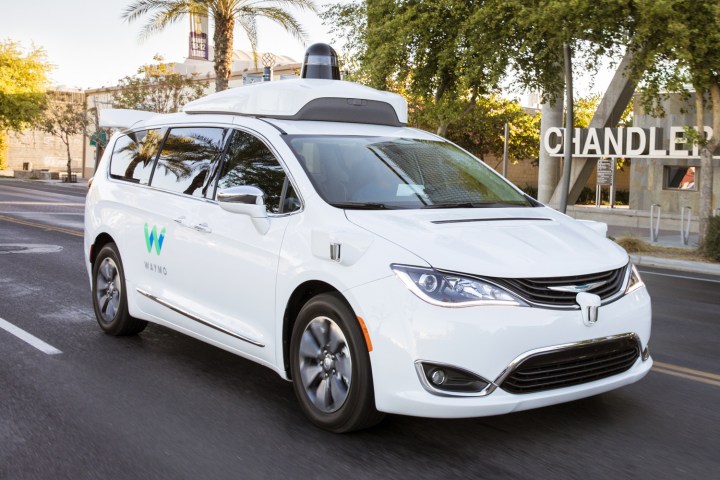
Waymo’s test fleet of self-driving cars has covered more than 8 million miles on public roads, and the company is implementing ambitious plans to bulk up that fleet and launch a public ridesharing service in Arizona later this year. But Waymo’s autonomous-driving tech may not be ready for prime time, according to a new report.
The Information talked to Arizona residents who live in areas where Waymo tests its autonomous cars. They said the Waymo cars seem to have difficulty in certain traffic situations, such as making left turns across lanes with fast-moving traffic, and merging onto highways in heavy traffic. The cars also stop and brake abruptly, according to the report.
“As the only company with a fleet of fully self-driving cars on public roads, our vehicles are continually learning and we’ve developed robust testing processes that will allow us to safely expand our vehicles’ driverless capabilities over time,” a Waymo spokesperson said in a statement emailed to CNET. “Safety remains our highest priority as we test and deploy our technology.
Part of the problem seems to be that Waymo’s self-driving cars are more cautious than the human drivers they share the road with. The cars stop for a full three seconds at every stop sign, and try to maintain a wide berth by making turns. Anyone who has spent time behind the wheel knows that most human drivers aren’t so conservative.
Just as cautious self-driving cars cause frustration for human drivers, humans’ unpredictability can flummox Waymo’s cars, according to The Information. Autonomous cars are programmed to follow the rules of the road, but they don’t always know what to do when other road users break those rules. It’s a problem also experienced by other companies testing prototype self-driving cars in California, but it will have to be solved. A car that only works if everyone and everything follows the rules will be pretty much useless in the real world.
It’s also worth noting that Arizona is a best-case scenario for self-driving car testing. Consistently clear weather means Waymo doesn’t have to worry about snow or rain interfering with cars’ sensors. Waymo has also meticulously mapped all of the areas where its self-driving cars operate. Repeating that process for every part of the country will be extremely labor intensive, slowing the deployment of self-driving cars elsewhere.
Waymo’s current fleet of self-driving cars are prototypes, and its technology could improve over time. But it’s unclear how long that will take, and Waymo is pushing to launch an autonomous ridesharing service in Arizona later this year. For now, Arizona residents may just have to get used to waiting longer at stop signs.
Editors' Recommendations
- The Apple Car was reportedly dubbed ‘the Bread Loaf’
- Tesla Autopilot vs. full self-driving: What’s the difference?
- Don’t wear Vision Pro while driving, U.S. transport chief says
- Beleaguered robotaxi startup Cruise lays off quarter of workforce
- Cruise woes prompt production halt of fully driverless van


